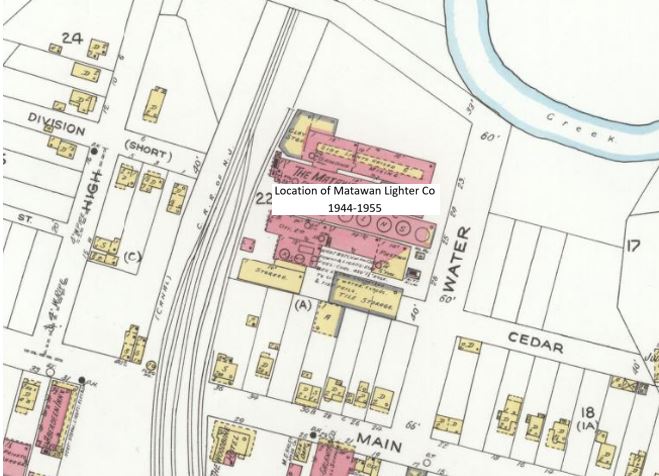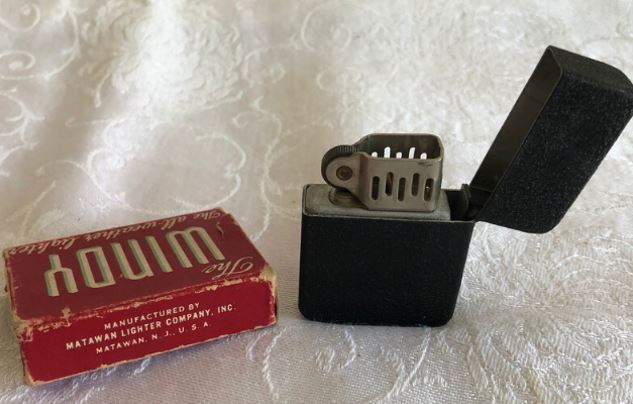In late 1944, the Matawan Lighter Company was one of several businesses which commenced operations in the former Matawan Tile factory which had closed due to wartime limitations of factory output. They had received a government contract to produce large quantities of cigarette lighters for the armed forces. They apparently managed a large portion of the 75,000 square foot factory – in July of 1945 they advertised for rent 60 to 70 thousand square feet for the ground floor of the factory which had a railroad siding. Later that month the company filed a patent for their tradename “Windy” for “Mechanical Cigar and Cigarette Lighters.”
 After the war, their business slowed but was revitalized in April of 1946 but with a contract for new orders of their two-toned plated lighters for the civilian trade and employed a total of 65 individuals to address the demand.
After the war, their business slowed but was revitalized in April of 1946 but with a contract for new orders of their two-toned plated lighters for the civilian trade and employed a total of 65 individuals to address the demand.
Later in April, the Hanson-Van Winkle-Munning company, the largest industry in Matawan, bought the factory, but Matawan Lighter remained in place until it was dissolved in January of 1955.
Examples of the lighters are commonly sold on eBay and were often “giveaway” items for companies which had their logos embossed on the items. In 1949, The Vogue Shoe Shop in Long Branch provided a Windy lighter with each pair of men’s shoes sold.
A “Mr. Ziff” was listed as a point of contact in the 1945 advertisement listed above. This apparently was Seymour Ziff (1909-2005), residing in Oakhurst, NJ who was listed in the 1950 Census as “Proprietor, Cigarette Lighter Factory.” There is no indication that he ever lived in Matawan, and it appears the Matawan Lighter Company itself was initially registered in the State of New York. Ziff was quite the entrepreneur. In 1962, he founded Tokyo Electron, Inc, a subsidiary of Tokyo Broadcasting Systems which manufactured semiconductors and related testing equipment. In 2002, it was ranked as the 401st largest international corporations by Forbes. After Matawan Lighter Company dissolved in 1955, he became President of the New Haven Clock in Watch Company in Connecticut, his home state. The next year this firm went the way of all the Connecticut clock companies, going out of business due to foreign competition.
Cigarette use by troops in WWII was extremely high. The soldiers who fought in Europe, sailors who transported and protected our ground forces, and marines who hit the beaches of Iwo Jima and other islands most likely had the lighters made in Matawan in their pockets when they went into battle.

NO COMMENTS